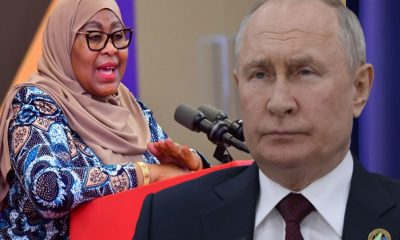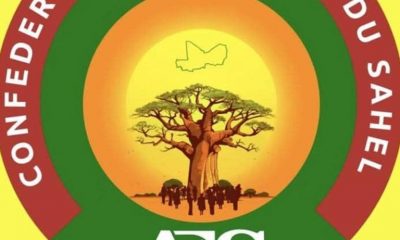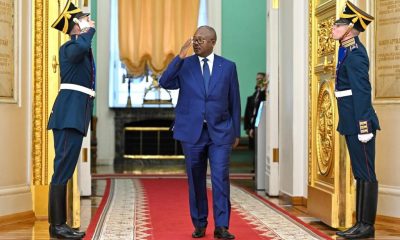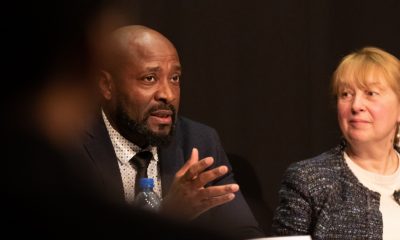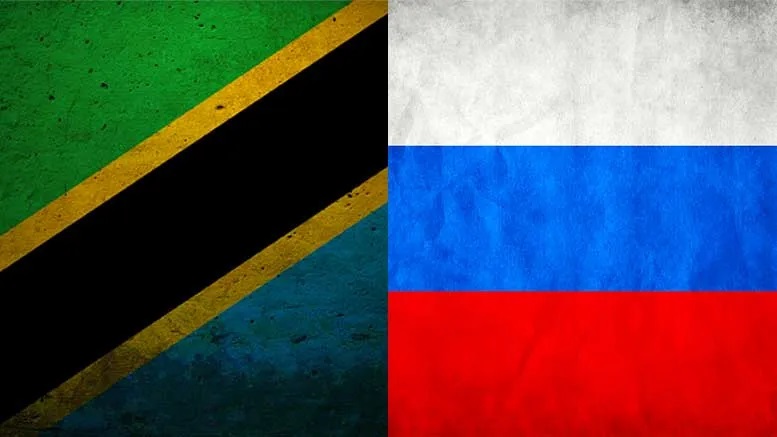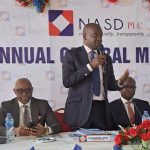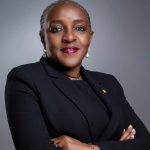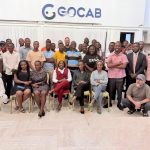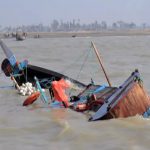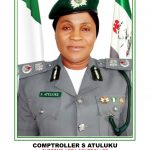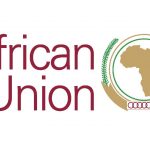World
Collective Sanctions Isolating Mali in the Sahel Sahara as Russia Rides the Wave of Anticolonialism
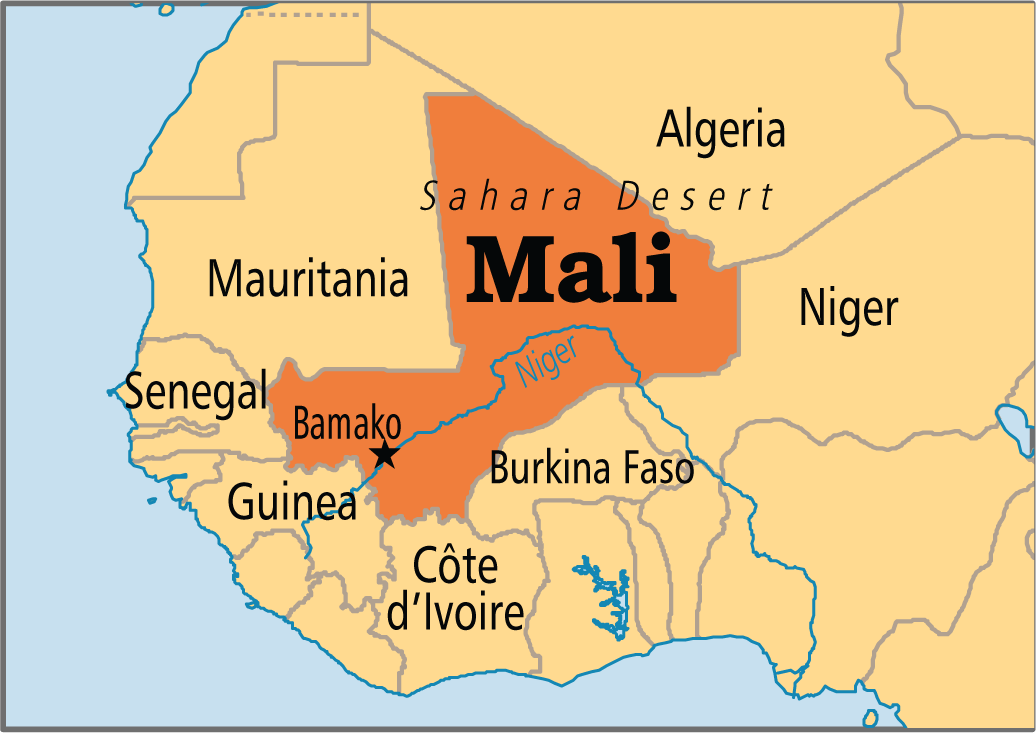
By Kester Kenn Klomegah
The Republic of Mali, a landlocked West African state with an impoverished population, faces increasing isolation from the international community over the political power grab.
Even as the African Union (AU), the continental organization, and the Economic Community of West African States (ECOWAS), the regional bloc, both suspended the membership of the Republic of Mali following military coups in August 2020 and May 2021, the ruling military officials are still holding onto political power by delaying the proposed elections earlier next year.
The African Union “decides to suspend the Republic of Mali from participation in all activities of the African Union, its organs and institutions, until normal constitutional order has been restored in the country”, the organization Peace and Security Council said in a statement earlier and further called on the military to return to barracks. It underlined the negative impact on the democratic gains made thus far throughout Africa.
Besides the African Union and ECOWAS, the international community has shown deep concern. Since October, the United Nations together with some European Union members have been urging the military officials to fix the polls on February 27, 2022.
Quite recently, West African leaders meeting at a summit in Nigeria demanded the military abide by plans for February polls, threatening further sanctions if Bamako fails to commit to returning to democracy and constitutional rule.
“The heads of state… decided to keep the (deadline) of February 27, 2022, for elections in Mali,” President of the West African ECOWAS bloc Jean-Claude Brou reiterated in Abuja, the capital of Nigeria, adding sanctions would be imposed in January if Mali did not move to stage polls.
Colonel Assimi Goita, the Head of Mali’s Transitional Government had, at first, promised to provide the regional bloc with an election timetable by the end of January 2022, but now offered multiple reasons to justify postponing the election, and said he would hold national consultations which he described as “indispensable” for peace and stability.
In a two-page letter to ECOWAS, Goita highlighted the need to “create the conditions for transparent and credible elections”, including stepped-up security operations, a new electoral law and the beginning of a series of national forums aimed at building a consensus for the return to civilian rule, without specifying concrete dates.
Several military leaders such as Defence Minister Sadio Camara and interim President Assimi Goita were trained by Russia. Despite various condemnations and calls for re-establishing a democratic government, undeterred Malians seem to enjoy all kinds of enormous support from Moscow.
While attending the conference at the United Nations, Foreign Affairs Minister Sergey Lavrov told reporters that the Malian government was turning towards private Russian companies. “This is an activity which has been carried out on a legitimate basis,” he said during a press conference at the UN headquarters in New York.
“We have nothing to do with that,” he added, saying the Malian government estimated that “its own capacities would be insufficient in the absence of external support” and initiated the discussions.
According to reports, Mali’s army-dominated government in Bamako is close to hiring 1,000 Wagner paramilitaries. France has warned Mali that hiring the fighters from the Russian private-security firm would isolate the country internationally.
Then during the joint media conference held with Mali’s Foreign Affairs Minister, Abdoulaye Diop, on November 11, Sergey Lavrov referred to the historical legacy, including the traditions of combating colonialism and overcoming colonial dependence and the subsequent recurrences of neo-colonialism in Africa. Regrettably, they have not yet become thing of the past.
“The fact that terrorist groups have been increasingly active, especially in the north of the country, does not offer a favourable environment for launching an election campaign. Mr Diop said the Malian government will determine the timeline for the election campaign before the end of the year,” Lavrov told the media conference.
“We do understand the need to reinforce Mali’s counter-terrorism potential. In this connection, the Russian state supplies the necessary equipment, weapons, and ammunition. We will do everything we can to prevent any threat to Mali’s statehood and territorial integrity,” he reassured his Malian counterpart.
Involvement of Russian ‘Mercenaries’
As for private military companies established by Russian nationals, Lavrov further explained: “We have nothing to do with this. If they sign agreements with the lawful governments of sovereign states, I don’t see anything negative in this.”
As for the nervous reaction of the French and some other Western representatives to Mali’s plans to work with a private military company from Russia (something the Prime Minister of Mali spoke openly about at the UN General Assembly session), this question is exclusively within the competence of the lawful Malian government.
Over the past few years, Russian authorities have in their speeches expressed anti-colonial sentiments and openly declared unflinching support for fighting against what they referred to as neocolonial tendencies in Africa. Russia is particularly against France in French-speaking African countries in West Africa including the entire Sahel and Central African Republic.
In an interview with Steven Gruzd, Head of the African Governance and Diplomacy Programme at the South African Institute of International Affairs (SAIIA), pointed out that Russia seeks to build on Soviet-era ties, and several African leaders of today studied in the USSR or in countries of the Soviet sphere of influence, and deploy the rhetoric of anti-colonialism in Africa.
He explained in his emailed discussion that Russia is fighting neo-colonialism from the West, especially in relations with the former colonies. It sees France as a threat to its interests especially in Francophone West Africa, the Maghreb and the Sahel. Russia has invested resources in developing French-language news media, and engages in anti-French media activity, including through social media.
In terms of political support like the UN Security Council, there is close interaction between Russia and the African States, but as recent research by SAIIA shows, not as much as assumed. (See this.) The relationship has to however deliver, and move from words to deeds, Gruzd, who also heads the Russia-Africa Research Programme initiated this year at SAIIA, South Africa’s premier research institute on international issues, concluding his discussion on Russia in Africa.
Joseph Siegle, Director of Research and Daniel Eizenga, Research Fellow at the Africa Center for Strategic Studies, co-authored an article headlined “Russia’s Wagner Play Undermines the Transition in Mali” in which they highlighted Wagner’s potential entry into Mali, and it reminds how the group started operating in the Central African Republic. The researchers offer an insight into possible reasons why Malians will delay smooth return to constitutional government.
With coup leader Colonel Assimi Goita still at the helm, Mali has been especially ripe for the picking as part of Russia’s asymmetric influence campaign in Africa. Borrowing from its Syria playbook, Moscow has followed a pattern of parachuting to prop up politically isolated leaders facing crises in regionally pivotal countries, often with abundant natural resources. These leaders are then indebted to Russia who assume the role of regional powerbroker.
By accepting Wagner troops in Mali, Goita will therefore gain a foreign security force that will help him consolidate his hold on power and break the prospects of returning to democratic rule. Allowing Wagner into Mali would have profound long-term implications for Mali’s sovereignty, security, governance, and foreign policy with repercussions for the broader region.
The two researchers reminded the African Union and ECOWAS to invoke the African Convention for the Elimination of Mercenarism, which went into effect in 1985, prohibiting states from allowing mercenaries into their territories. Declaring Wagner a mercenary force identifies them, appropriately, as an illegal entity, one that should be categorically prohibited from operating in Mali (and other parts of Africa).
Several reports have indicated that the Wagner operatives have dubious involvement in the Central African Republic (CAR), where some of the Russian military instructors backing the beleaguered government are believed to be mercenaries. They are also linked to war crimes in Libya’s civil war. Russia entered the fray in CAR in 2017 as part of efforts to expand its influence across the continent. It gave the African country weapons, ammunition and 175 military instructors, but reports indicated they are in thousands.
The U.S. State Department sanctioned Wagner Group, run by Russian oligarch Yevgeny Prigozhin, back in July 2020, as well as several front companies for the group’s operations in Sudan.
On December 13, the European Union (EU) imposed sanctions on the Wagner Group and several people allegedly associated with it, further accused of human rights violations, and in particular torture, extrajudicial executions and killings.
In a statement posted on its website, the Western nations warned that the deployment of Wagner mercenaries could “lead to an aggravation of the human rights situation in Mali [and] threaten the agreement for peace and reconciliation” in the conflict-torn country.
They also said they “deeply regret” the choice of the Malian authorities to use “already scarce public funds” to pay foreign mercenaries instead of supporting the country’s armed forces. The statement was jointly issued by Belgium, Canada, Czech Republic, Denmark, Estonia, France, Germany, Italy, Lithuania, Netherlands, Norway, Portugal, Romania and Sweden and the United Kingdom.
The Wagner Group and Operation Barkhane
According to the local Russian media Nezavisimaya Gazeta, the Wagner Group is facing sanctions for its work in Syria, Libya, the Central African Republic (CAR), Sudan, Mozambique and Ukraine.
The main architect of sanctions against Mali and the PMC Wagner is France. Both of its foreign and defence ministers have repeatedly criticized the possibility of deploying employees of the PMC Wagner to Mali, saying its activity was incompatible with France’s further military presence.
France has approximately 5,100 troops in the region under Operation Barkhane, which spans five countries in the Sahel—Burkina Faso, Chad, Mali, Mauritania and Niger.
Currently, Russia sees both Chad and Mali as conduits to penetrate into the Sahel by pushing the much-criticized Wagner Group that organizes private military for countries in conflict. It is aggressively targeting the Sahel region, an elongated landlocked territory located between north Africa (Maghreb) and West Africa region, and also stretches from the Atlantic Ocean to the Red Sea.
As developments explicitly show, Mali already stands in isolation here if the Goita military junta does not finally drop close deals with Russia’s Wagner and further ignores moving towards democratic elections next February.
The Economic Community of West African States (ECOWAS), the African Union, the United Nations, and the bilateral and multilateral partners endorse and support the implementation of sanctions and other strict measures to ensure a peaceful return to constitutional and democratic government in the Republic of Mali.
This article was first and originally published by IDN-InDepthNews.
Kester Kenn Klomegah writes frequently about Russia, Africa and the BRICS. As a versatile researcher, he believes that everyone deserves equal access to quality and trustworthy media reports. Most of his well-resourced articles are reprinted elsewhere in a number of reputable foreign media.
World
Russia Expands Military-Technical Cooperation With African Partners

By Kestér Kenn Klomegâh
Despite geopolitical complexities, tensions and pressure, Russia’s military arms and weaponry sales earned approximately $15 billion at the closure of 2025, according to Kremlin report. At the regular session, chaired by Russian President Vladimir Putin on Jan. 30, the Commission on Military and Technical Cooperation with Foreign Countries analyzed the results of its work for 2025, and defined plans for the future.
It was noted that the system of military-technical cooperation continued to operate in difficult conditions, and with increased pressure from the Western countries to block business relations with Russia. The meeting, however, admitted that export contracts have generally performed sustainably. Russian military products were exported to more than 30 countries last year, and the amount of foreign exchange exceeded $15 billion.
Such results provide an additional opportunity to direct funds to the modernization of OPC enterprises, to the expansion of their production capacities, and to advanced research. It is also important that at these enterprises a significant volume of products is civilian products.
The Russian system of military-technical cooperation has not only demonstrated effectiveness and high resilience, but has created fundamental structures, which allow to significantly expand the “geography” of supplies of products of military purpose and, thus strengthen the position of Russia’s leader and employer advanced weapons systems – proven, tested in real combat conditions.
Thanks to the employees of the Federal Service for Military Technical Cooperation and Rosoboronexport, the staff of OPC enterprises for their good faith. Within the framework of the new federal project “Development of military-technical cooperation of Russia with foreign countries” for the period 2026-2028, additional measures of support are introduced. Further effective use of existing financial and other support mechanisms and instruments is extremely important because the volumes of military exports in accordance with the 2026 plan.
Special attention would be paid to the expansion of military-technological cooperation and partnerships, with 14 states already implementing or in development more than 340 such projects.
Future plans will allow to improve the characteristics of existing weapons and equipment and to develop new promising models, including those in demand on global markets, among other issues – the development of strategic areas of military-technical cooperation, and above all, with partners on the CIS and the CSTO. This is one of the priority tasks to strengthen both bilateral and multilateral relations, ensuring stability and security in Eurasia.
From January 2026, Russia chairs the CSTO, and this requires working systematically with partners, including comprehensive approaches to expanding military-technical relations. New prospects open up for deepening military-technical cooperation and with countries in other regions, including with states on the African continent. Russia has been historically strong and trusting relationships with African countries. In different years even the USSR, and then Russia supplied African countries with a significant amount of weapons and military equipment, trained specialists on their production, operation, repair, as well as military personnel.
Today, despite pressure from the West, African partners express readiness to expand relations with Russia in the military and military-technical fields. It is not only about increasing supplies of Russian military exports, but also about the purchase of other weapons, other materials and products. Russia has undertaken comprehensive maintenance of previously delivered equipment, organization of licensed production of Russian military products and some other important issues. In general, African countries are sufficient for consideration today.
World
Trump Picks Kevin Warsh to Succeed Jerome Powell as Federal Reserve Chair
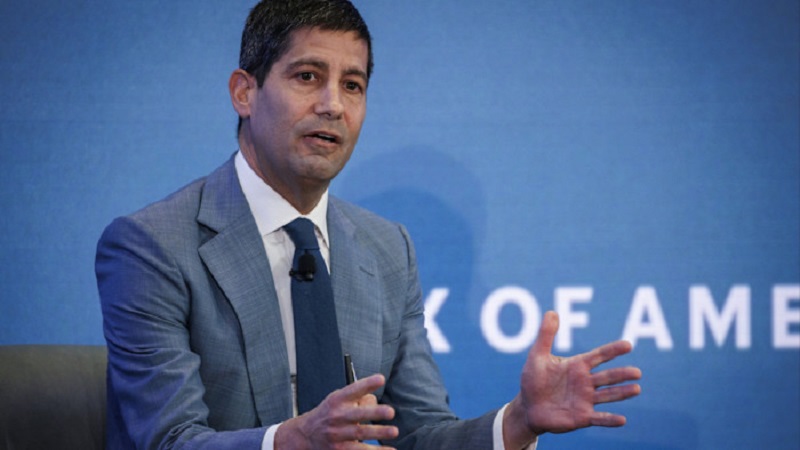
By Adedapo Adesanya
President Donald Trump has named Mr Kevin Warsh as the successor to Mr Jerome Powell as the Federal Reserve chair, ending a prolonged odyssey that has seen unprecedented turmoil around the central bank.
The decision culminates a process that officially began last summer but started much earlier than that, with President Trump launching a criticism against the Powell-led US central bank almost since he took the job in 2018.
“I have known Kevin for a long period of time, and have no doubt that he will go down as one of the GREAT Fed Chairmen, maybe the best,” Mr Trump said in a Truth Social post announcing the selection.
US analysts noted that the 55-year old appear not to ripple market because of his previous experience at the apex bank as Governor, with others saying he wouldn’t always do the bidding of the American president.
If approved by the US Senate, Mr Warsh will take over the position in May, when Mr Powell’s term expires.
Despite having argued for reductions recently, “Warsh has a long hawkish history that markets have not forgotten,” one analyst told Bloomberg.
President Trump has castigated Mr Powell for not lowering interest rates more quickly. His administration also launched a criminal investigation of Powell and the Federal Reserve earlier this month, which led Mr Powell to issue an extraordinary rebuke of President Trump’s efforts to politicize the independent central bank.
World
BRICS Agenda, United States Global Dominance and Africa’s Development Priorities
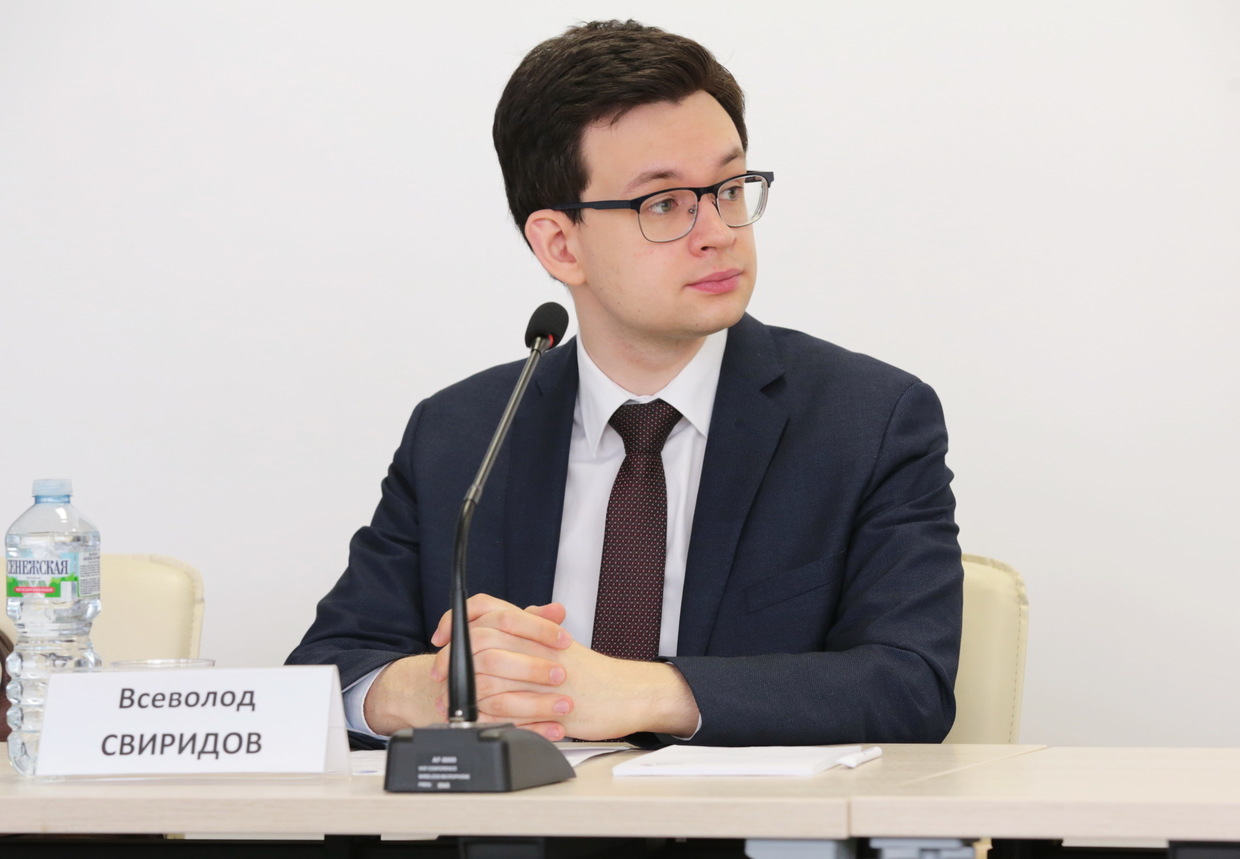
By Kestér Kenn Klomegâh
Donald Trump has been leading the United States as its president since January 2025. Washington’s priority is to Make America Great Again (MAGA). Trump’s tariffs have rippled many economies from Latin America through Asian region to the continent of Africa. Trump’s Davos speech has explicitly revealed building a ‘new world order’ based on dominance rather than trust. He has also initiated whirlwind steps to annex Greenland, while further created the Board of Peace, aimed at helping end the two-year war between Israel and Hamas in Gaza and to oversee reconstruction. Trump is handling the three-year old Russia-Ukraine crisis, and other deep-seated religious and ethnic conflicts in Africa.
These emerging trends, at least in a considerable short term, are influencing BRICS which has increased its geopolitical importance, and focusing on uniting the countries in the Global East and Global South. From historical records, BRICS, described as non-western organization, and is loosing its coherence primarily due to differences in geopolitical interests and multinational alignments, and of course, a number of members face threats from the United States while there are variations of approach to the emerging worldwide perceptions.
In this conversation, deputy director of the Center for African Studies at Moscow’s National Research University High School of Economics (HSE), Vsevolod Sviridov, expresses his opinions focusing on BRICS agenda under India’s presidency, South Africa’s G20 chairmanship in 2024, and genegrally putting Africa’s development priorities within the context of emerging trends. Here are the interview excerpts:
What is the likely impact of Washington’s geopolitics and its foreign policy on BRICS?
From my perspective, the current Venezuela-U.S. confrontation, especially Washington’s tightened leverage over Venezuelan oil revenue flows and the knock-on effects for Chinese interests, will be read inside BRICS as a reminder that sovereign resources can still be constrained by financial chokepoints and sanctions politics. This does not automatically translate into BRICS taking Venezuela’s side, but it does strengthen the bloc’s long-running argument for more resilient South-South trade settlement, diversified energy chains, and financing instruments that reduce exposure to coercive measures, because many African and other developing economies face similar vulnerabilities around commodities, shipping, insurance, and correspondent banking. At the same time, BRICS’ expansion makes consensus harder: several members maintain significant ties with the U.S., so the most likely impact is a technocratic push rather than a loud political campaign.
And highlighting, specifically, the position of BRICS members (South Africa, Ethiopia and Egypt, as well as its partnering African States (Nigeria and Uganda)?
Venezuela crisis urges African members to demand that BRICS deliver usable financial and trade tools. For South Africa, Ethiopia, and Egypt, the Venezuela case is more about the precedent: how quickly external pressure can reshape a country’s fiscal room, debt dynamics, and even investor perceptions when energy revenues and sanctions compliance collide. South Africa will likely argue that BRICS should prioritize investment, industrialization, and trade facilitation. Ethiopia and Egypt, both debt-sensitive and searching for FDI, will be especially attentive to anything that helps de-risk financing, while avoiding steps that could trigger secondary-sanctions anxieties or scare off diversified investors.
Would the latest geopolitical developments ultimately shape the agenda for BRICS 2026 under India’s presidency?
India’s 2026 chairmanship is already framed around “Resilience, Innovation, Cooperation and Sustainability,” and Venezuela’s shock (paired with broader sanction/market-volatility lessons) will likely sharpen the resilience part. From an African perspective, that is an opportunity: South Africa, Ethiopia, and Egypt can press India to translate the theme into deliverables that matter on the ground: food and fertilizer stability, affordable energy access, infrastructure funding. India, in turn, has incentives to keep BRICS focused on economic problem-solving rather than becoming hostage to any single flashpoint. So the Venezuela episode may function as a cautionary case study that accelerates practical cooperation where African members have the most to gain. And I would add: the BRICS agenda will become increasingly Africa-centered simply because Africa’s weight globally is rising, and recent summit discussions have repeatedly highlighted African participation as a core Global South vector. South Africa’s G20 chairmanship last year explicitly framed around putting Africa’s development priorities high on the agenda, further proves this point.
-

 Feature/OPED6 years ago
Feature/OPED6 years agoDavos was Different this year
-
Travel/Tourism9 years ago
Lagos Seals Western Lodge Hotel In Ikorodu
-

 Showbiz3 years ago
Showbiz3 years agoEstranged Lover Releases Videos of Empress Njamah Bathing
-

 Banking8 years ago
Banking8 years agoSort Codes of GTBank Branches in Nigeria
-

 Economy3 years ago
Economy3 years agoSubsidy Removal: CNG at N130 Per Litre Cheaper Than Petrol—IPMAN
-

 Banking3 years ago
Banking3 years agoSort Codes of UBA Branches in Nigeria
-

 Banking3 years ago
Banking3 years agoFirst Bank Announces Planned Downtime
-

 Sports3 years ago
Sports3 years agoHighest Paid Nigerian Footballer – How Much Do Nigerian Footballers Earn


